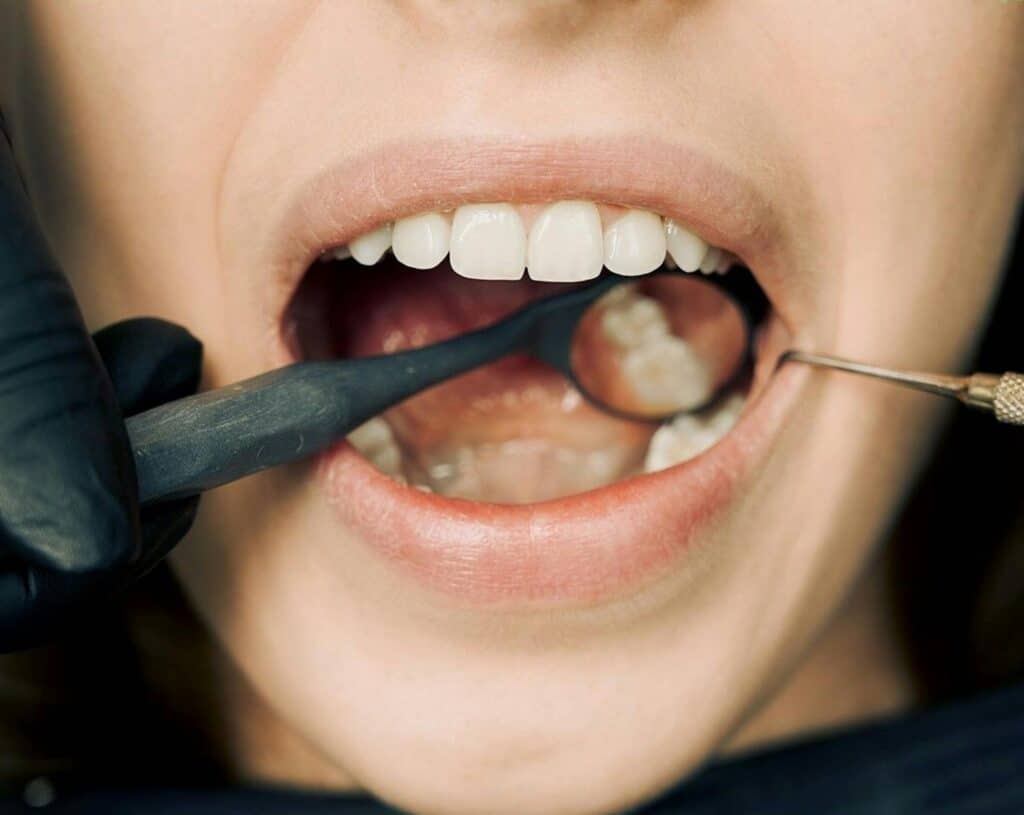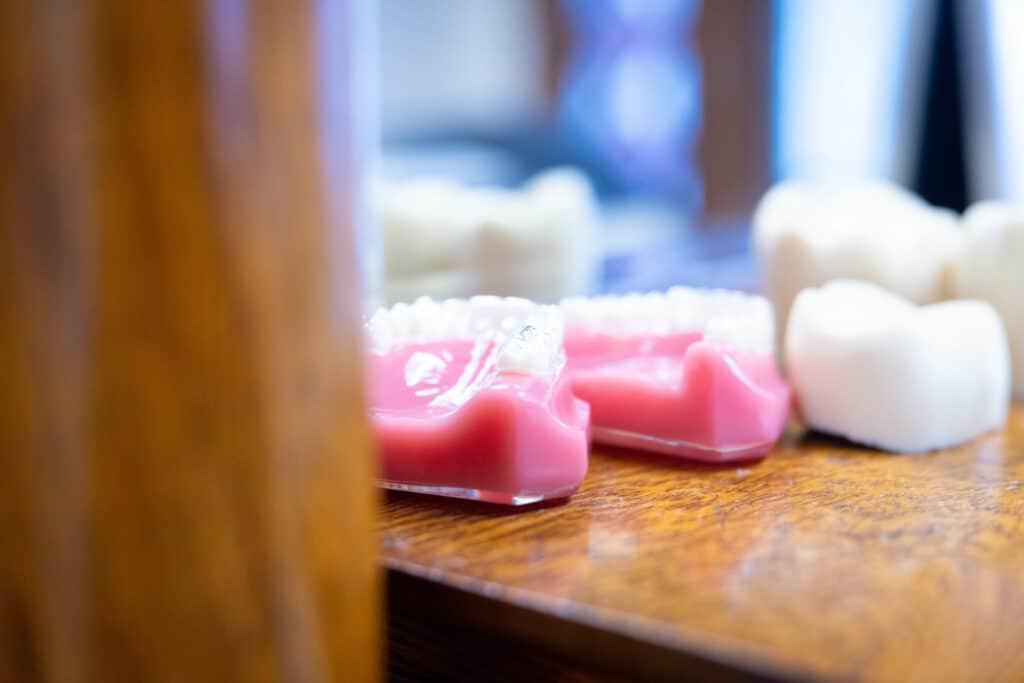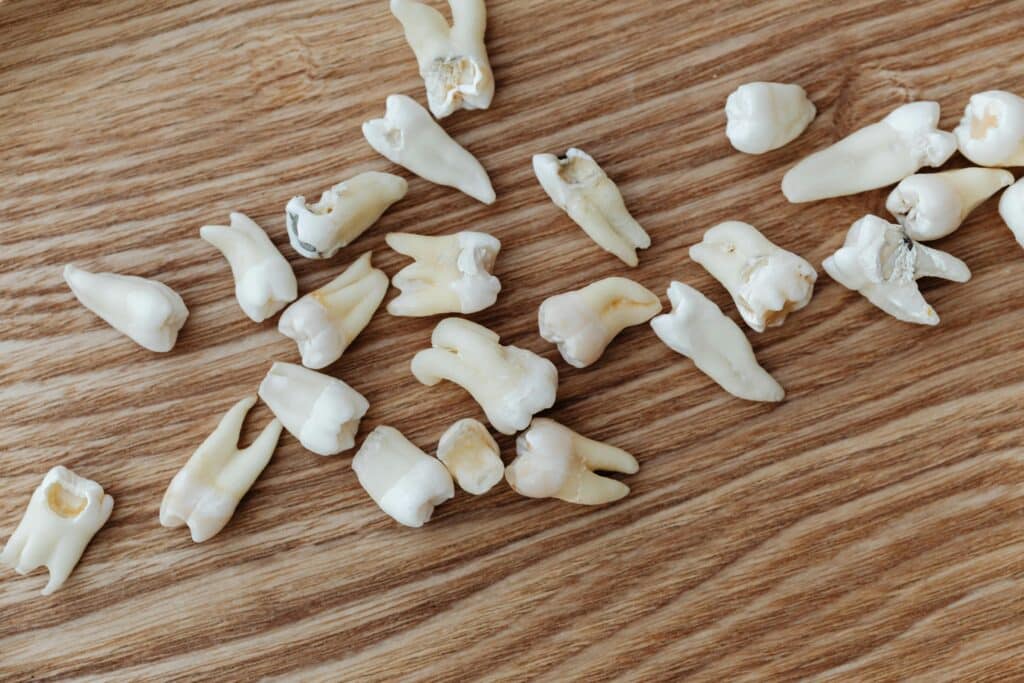Ouch! You’re enjoying a scoop of your favorite ice cream and suddenly, sharp pain shoots through your teeth. If this sounds familiar, you’re not alone.
Tooth sensitivity to cold is extremely common, but that doesn’t mean you should ignore it.
What Causes Cold Sensitivity in Teeth?
Each tooth has a protective outer layer called enamel. Beneath that lies dentin, which connects to nerves inside your tooth.
If enamel wears down or gums recede, cold temperatures can hit that sensitive dentin and trigger pain.
This kind of pain is typically a symptom of:
- Worn enamel
- Gum recession
- Cavities
- Cracked teeth
- Recent dental procedures
And in some cases, it’s a combination of all of the above.

Common Reasons Ice Cream Triggers Tooth Pain
a) Worn Down Enamel
If you brush too hard, consume acidic foods, or grind your teeth at night, enamel can wear away..
Over time, even a small bite of ice cream can cause sharp, sudden pain. If you’re feeling this often, it’s time to consider a preventative dentistry solution to strengthen and protect your enamel.

b) Gum Recession
If your gums have started pulling back from the teeth, they may be exposing the root surfaces, which aren’t protected by enamel. Roots are extremely sensitive to cold—and once exposed, they’re much more prone to pain.
This is commonly caused by:
- Aggressive brushing
- Gum disease
- Age-related changes
If you notice longer-looking teeth or sensitivity near the gumline, a routine dental checkup can help catch this early.
c) Cavities
This is one of the most common and most overlooked causes of cold sensitivity.
If your pain is isolated to one tooth or has come on recently, you might be dealing with untreated decay. The good news? When caught early, cavities are easy to treat.
But if you ignore them, you could end up needing more advanced care like crowns & bridges.
Here’s how to stop it:
- Replace juice or soda with water.
- Stick to 3 main meals and 2 snacks per day—no grazing all day long.
- Avoid sticky candies, fruit snacks, and even dried fruits between meals.

d) Cracked or Chipped Tooth
Even a tiny crack in a tooth can expose the inner layers, leading to severe sensitivity. The pain might come and go—but cold food like ice cream often makes it worse.
If you’ve recently chewed something hard, or you grind your teeth in your sleep, a crack could be the culprit. Your dentist may recommend treatments like bonding, a crown, or in severe cases, dental implants if the tooth can't be saved.
e) Recent Dental Work
Did you just get a filling or whitening treatment? Temporary sensitivity to cold is normal. However, if it persists longer than a couple of weeks, or gets worse instead of better, it’s worth having it checked out during your next general dentistry visit.
What Should You Do If Ice Cream Hurts Your Teeth?
This pain is not something you should just “deal with.” In fact, it’s your mouth’s way of telling you that something’s wrong. Depending on the cause, there are several solutions your dentist might recommend:
- Fluoride treatment to strengthen enamel
- Desensitizing toothpaste to reduce nerve reaction
- Sealants or bonding agents to protect exposed areas
- Night guards if grinding is a problem
- Fillings, crowns, or deep cleanings if decay or gum disease is present
The important part? Getting a proper diagnosis. Without knowing the exact reason for the sensitivity, you’re just masking the issue.
If you’re feeling this pain often—you should talk to a dentist as soon as possible.
Pain is a warning sign. Do not ignore it.
Have questions or ready to book your next visit?
Contact us today—we’re here to help every step of the way.



